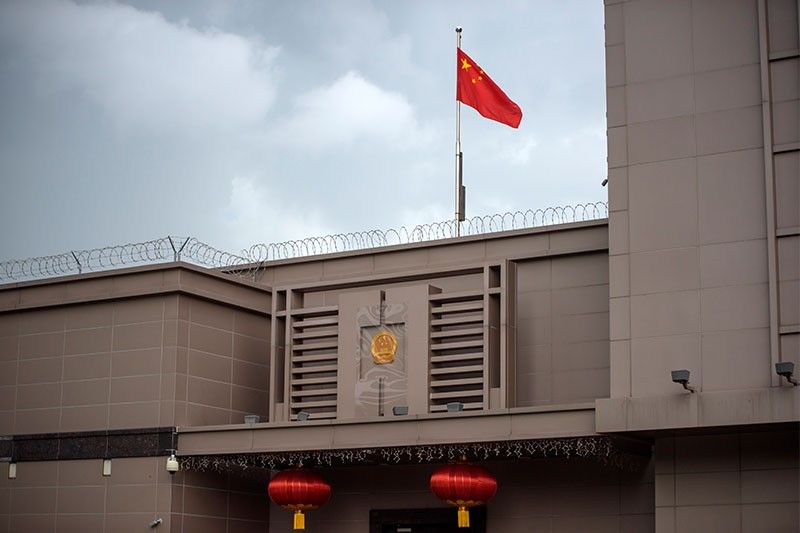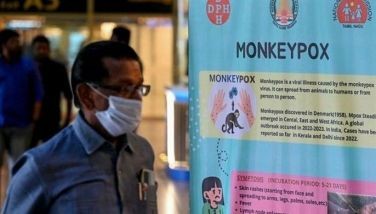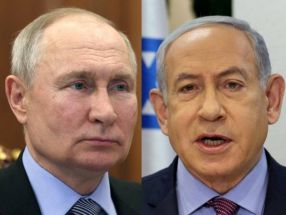Consulate closure latest salvo in US-China tussle

WASHINGTON, United States — The closure of the Chinese consulate in Houston is the latest salvo in a battle between the United States and China for economic and technological supremacy that is shaping up as a new Cold War and includes a high-stakes race for a COVID-19 vaccine.
The latest developments
The United States ordered the closure of the Chinese consulate in the Texas city of Houston on Wednesday, citing Chinese theft of intellectual property.
The move came a day after the Justice Department unveiled the indictment of two Chinese nationals for hacking hundreds of companies and attempting to steal coronavirus vaccine research.
Republican Senator Marco Rubio, acting chairman of the Senate Intelligence Committee, tweeted that the Houston consulate was the "central node of the Communist Party's vast network of spies & influence operations in the United States."
Houston is one of the largest centers for biotech and medical research in the world.
Foreign policy experts said reprisals can be expected.
"The cardinal rule of diplomacy is reciprocity," said Molly Montgomery, a former diplomat now at the Brookings Institution.
"State doesn't make a decision like this lightly, since it almost certainly will result in the closure of one of our own consulates."
What are the US grievances?
The accusations of Chinese economic espionage appear to be the primary motivation for the US move but it comes against a backdrop of disputes with Beijing on numerous fronts.
"There is no doubt that China represents a tremendous espionage threat for the United States," said Abraham Denmark, Asia program director with the Kissinger Institute on China and the US at The Wilson Center.
"The question here is not China's culpability -- I expect it's solid -- but rather if suddenly closing the consulate in Houston will address the problem," Denmark said.
US accusations that China is engaged in a campaign to steal American corporate secrets are not new.
But President Donald Trump has made it a theme of his trade war with China and made turning up the pressure on Beijing a pillar of his 2016 presidential campaign.
Besides trade, US-China relations have also been soured by the COVID-19 pandemic, China's policies in Hong Kong and against the Uighurs in Xinjiang and in the South China Sea.
FBI director Christopher Wray said earlier this month that cases of Chinese economic espionage have soared by 1,300 percent over the past decade.
"We've now reached the point where the FBI is opening a new China-related counterintelligence case about every 10 hours," Wray said.
What are the targets?
US Attorney General Bill Barr recently accused China of mounting an "economic blitzkrieg" on global free markets and told US companies to stop compromising their principles to appease Chinese leaders and regulators.
"If Disney and other American corporations continue to bow to Beijing, they risk undermining both their own future competitiveness and prosperity, as well as the classical liberal order that has allowed them to thrive," Barr said.
The coronavirus pandemic has exacerbated tensions between Washington and Beijing with Trump repeatedly lashing out at China for not stopping what he calls the "Chinese virus."
Since May, the United States has accused China of seeking to steal coronavirus vaccine research, an allegation also levelled against the two Chinese hackers named in Tuesday's indictment.
Why now?
Barr warned not only of a Chinese "economic blitzkrieg" but an attempt by Beijing to "surpass the United States as the world's preeminent superpower."
Some 100 days from the November presidential election, Trump has sought to make US relations with China a central theme of his campaign, accusing his rival, former vice president Joe Biden, of being "soft" on China.
Speaking at a Senate hearing on China, Deputy Secretary of State Stephen Biegun said the United States was facing a "significant challenge in China."
"The one thing that I don't think any of us should expect are fast results," Biegun said. "We're up against a generational challenge here.
"This is a formidable challenge in virtually every dimension of our economic, political, and social and military existence."
Gerard Araud, the former French ambassador to the United States, said the Trump administration was seeking to frame the conflict in ideological terms.
"Most of the time, the US administration is not referring anymore to China but to the (Chinese Communist Party)," Araud said on Twitter. "A crude way to transform a great power rivalry into an ideological crusade."
US President Donald Trump says North American neighbors Canada and Mexico will get no relief from his new tariffs on steel and aluminum imports unless a "new and fair" free trade agreement is signed.
The Trump administration says the tariffs are necessary to preserve the American industries—and that doing so is a national security imperative. But Trump's latest tweets suggest he's also using the upcoming tariffs as leverage in ongoing talks to revise the North American Free Trade Agreement. The latest round of a nearly year-long renegotiation effort is concluding this week in Mexico City. — Associated Press
The United States and China spar over trade issues but promise to keep lines of communication open as Beijing's commerce minister paid a rare visit after a period of soaring tensions.
Minister Wang Wentao met US Trade Representative Katherine Tai on the sidelines of an Asia-Pacific Economic Cooperation trade meeting in Detroit, a day after he saw his counterpart Gina Raimondo in Washington.
Tai "discussed the importance of the US-China trade relationship in the global economy and the need for both sides to continue engaging with one another," her office says in a statement. — AFP
The United States is not looking for a new deal in its negotiations with China over trading practices but rather to address practices by Beijing that it finds objectionable, Washington's trade chief says Thursday.
US Trade Representative Katherine Tai (USTR) is pursuing talks with Beijing over the "phase one" trade agreement the countries signed two years ago, under which China committed to buying $200 billion in American goods through 2021 in exchange for relief from tariffs imposed by then-president Donald Trump.
Tai, who was appointed after President Joe Biden took office last year, tells the Senate Finance Committee her talks with Beijing on its adherence to the deal have been "very difficult."
"I think that we're not necessarily looking at another deal in the next phase, but to expanding out our focus on China's challenges beyond its commitments and compliance in phase one to the issues that were not captured by phase one," she says. — AFP
Trade relations between Washington and Beijing are at a "difficult" stage but President Biden's administration is committed to protecting the US economy from negative impacts of China's policies, the top American trade official says.
United States Trade Representative Katherine Tai says her team will "engage robustly" with China in ongoing talks over Beijing's commitments to buy American goods under a deal signed under former president Donald Trump.
"We're in a very difficult stage of this trade relationship," Tai says, adding that "the conversations are not easy." — AFP
China hails a WTO decision allowing it to slap duties on $645 million worth of US imports each year, calling on Washington to follow the ruling and "stop seeking excuses" in a long-running anti-dumping dispute.
But the move by the World Trade Organization does not mean China will automatically impose the tariffs and Beijing stopped short Thursday of announcing any fresh duties.
"We hope the US stops seeking excuses and takes immediate action to correct its wrongdoing in the trade remedy investigation against China," commerce ministry spokesman Gao Feng says.
"The WTO ruling once again proves that the US has long violated WTO rules, abused trade remedy measures, and refused to fulfil its international obligations." — AFP
President Joe Biden says his administration is working on removing tariffs on Chinese goods imposed by his predecessor, but Beijing will have to do more to meet its trade commitments.
"We're not there yet," Biden tells reporters when asked about the prospect of ending the tariffs.
At a press conference ahead of the first anniversary of his inauguration, Biden says US Trade Representative Katherine Tai is working on the issue with China but the timing is "uncertain." — AFP
- Latest
- Trending































